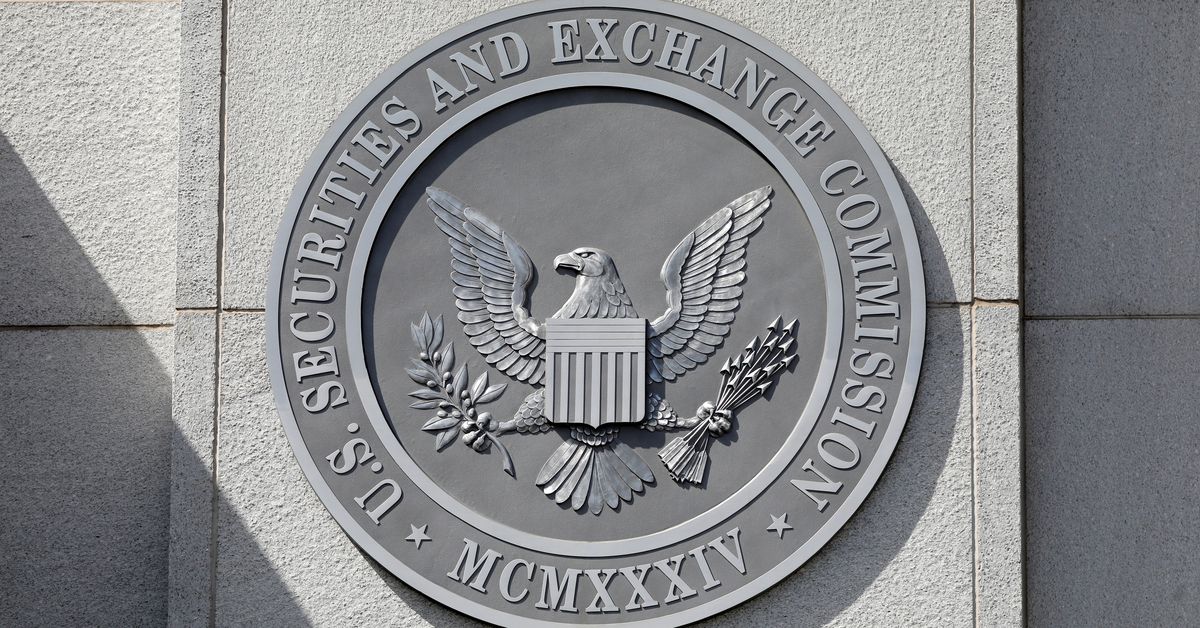Crypto ETF Frenzy Marks SEC Transition Ahead of Trump Administration
19.01.2025 12:00 2 min. read Kosta Gushterov
As SEC Chair Gary Gensler’s term nears its end on January 20, a wave of crypto-focused ETF applications has flooded the regulatory body.
This sudden surge reflects industry anticipation of a potentially more crypto-friendly regulatory approach under President-elect Donald Trump’s administration.
On January 17, several firms made significant filings, including ProShares, which submitted a proposal for a Solana Futures ETF. This fund would allow investors to gain exposure to Solana’s price movements through futures contracts rather than direct holdings. Despite its potential, some experts, such as ETF analyst James Seyffart, raised concerns about the liquidity of Solana futures, suggesting such ETFs may not become viable in the U.S. until 2026.
CoinShares also filed for a new ETF that tracks its proprietary Compass Crypto Market Index, while ProShares expanded its filings to include leveraged and inverse ETFs linked to XRP. Other companies, including Bitwise and WisdomTree, joined the rush with spot XRP ETF applications. Tidal DeFi proposed a different approach, with a fund aimed at debt instruments tied to crypto ecosystem companies, including miners and payment providers.
Earlier in the week, VanEck submitted its “Onchain Economy” ETF proposal, designed to invest in a wide range of cryptocurrency-related firms, from infrastructure builders to exchanges. This diverse wave of filings signals how asset managers are positioning themselves ahead of what could be a pivotal shift in U.S. crypto regulation.
-
1
Ripple Faces Legal Setback as Court Rejects Bid to Ease Penalties
26.06.2025 16:54 1 min. read -
2
Coinbase Surges 43% in June, Tops S&P 500 After Regulatory Wins and Partnerships
29.06.2025 21:00 2 min. read -
3
Ripple Has Applied for a National Banking License
03.07.2025 7:00 2 min. read -
4
What Will Happen With the Stock Market if Trump Reshapes the Fed?
29.06.2025 13:00 2 min. read -
5
Barclays Blocks Crypto Credit Card Payments in Latest Blow to Retail Investors
26.06.2025 8:00 2 min. read
BlackRock Moves to Add Staking to iShares Ethereum ETF Following SEC Greenlight
BlackRock is seeking to enhance its iShares Ethereum Trust (ticker: ETHA) by incorporating staking features, according to a new filing with the U.S. Securities and Exchange Commission (SEC) submitted Thursday.
IMF Disputes El Salvador’s Bitcoin Purchases, Cites Asset Consolidation
A new report from the International Monetary Fund (IMF) suggests that El Salvador’s recent Bitcoin accumulation may not stem from ongoing purchases, but rather from a reshuffling of assets across government-controlled wallets.
Sberbank Moves to Dominate Russia’s Crypto Custody Sector
Sberbank, Russia’s largest state-owned bank, is preparing to launch custody services for digital assets, marking a significant expansion into the country’s evolving crypto landscape.
Bank of America CEO Confirms Stablecoin Plans Are in Motion
Bank of America is actively developing a stablecoin offering, CEO Brian Moynihan revealed during a post-earnings conference call on Wednesday.
-
1
Ripple Faces Legal Setback as Court Rejects Bid to Ease Penalties
26.06.2025 16:54 1 min. read -
2
Coinbase Surges 43% in June, Tops S&P 500 After Regulatory Wins and Partnerships
29.06.2025 21:00 2 min. read -
3
Ripple Has Applied for a National Banking License
03.07.2025 7:00 2 min. read -
4
What Will Happen With the Stock Market if Trump Reshapes the Fed?
29.06.2025 13:00 2 min. read -
5
Barclays Blocks Crypto Credit Card Payments in Latest Blow to Retail Investors
26.06.2025 8:00 2 min. read


